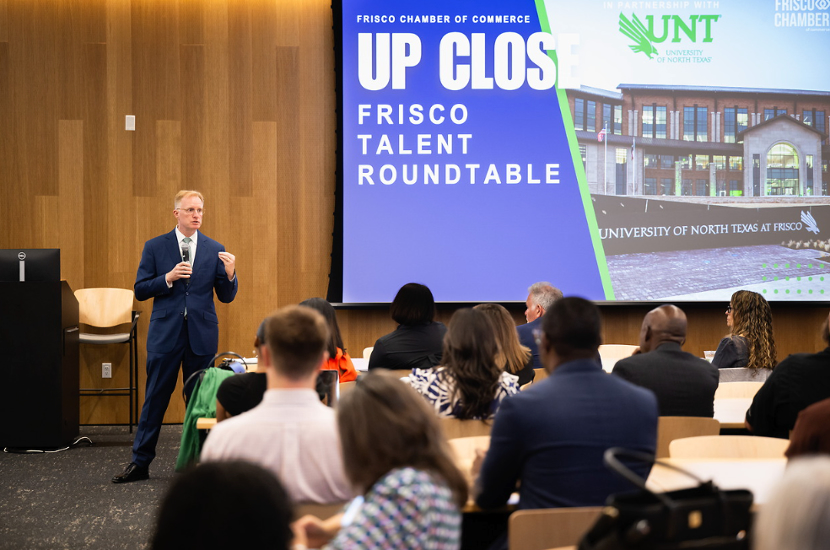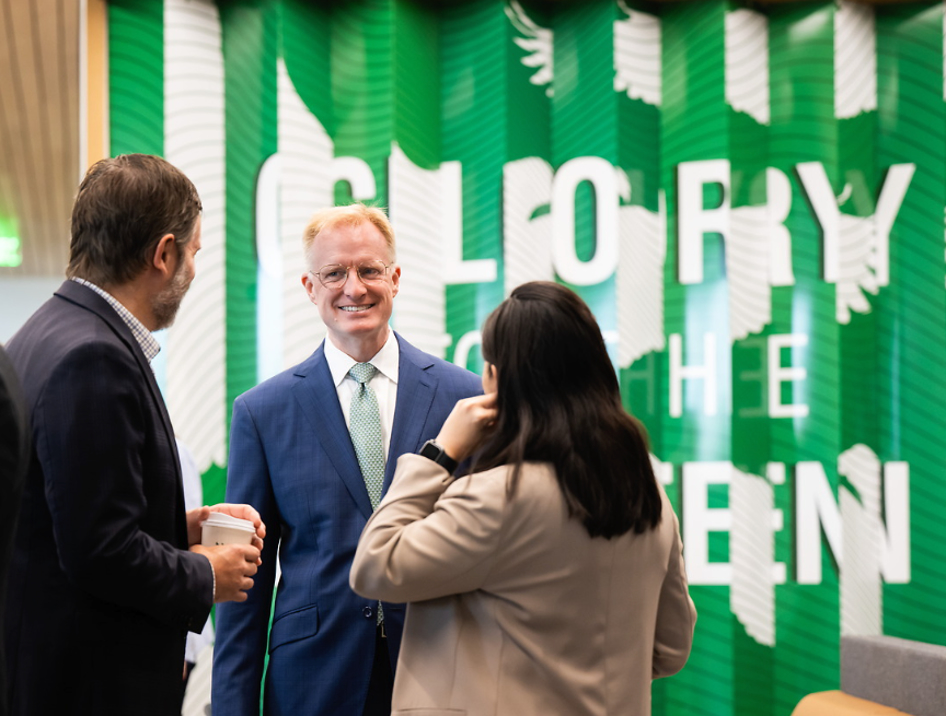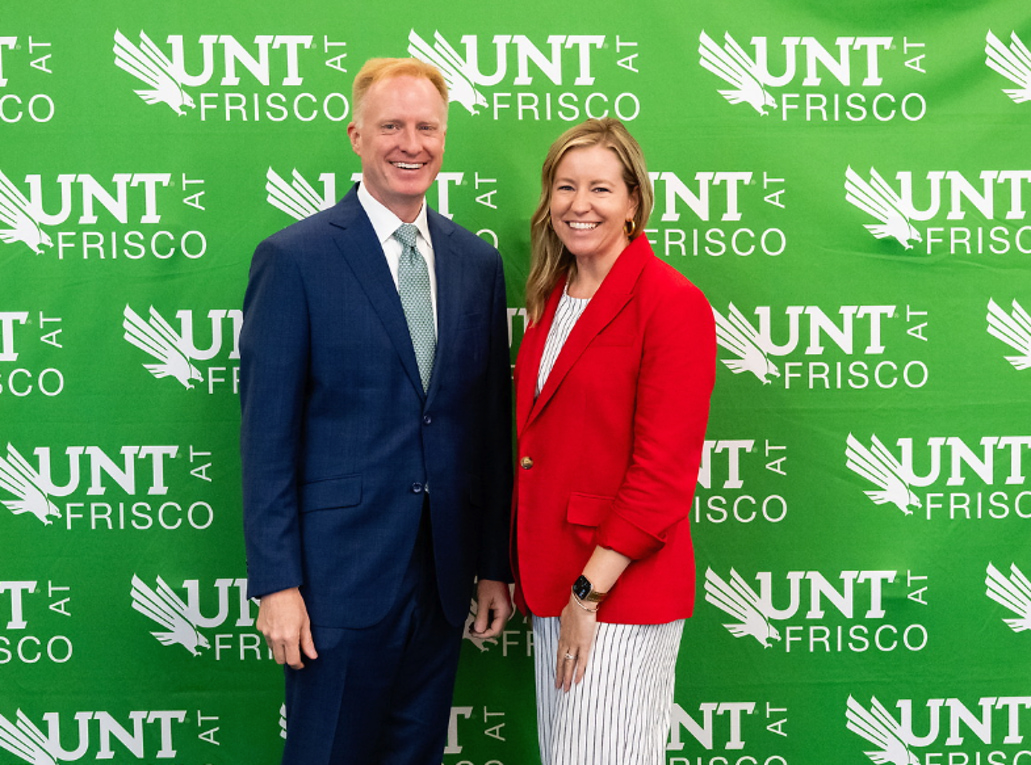
FRISCO (UNT), Texas — How do you prepare for jobs that don’t exist yet?
That was the core question explored during a recent roundtable hosted by the Frisco Chamber of Commerce at UNT at Frisco, where nearly 90 business, civic and higher education leaders gathered to discuss the North Texas region’s workforce challenges — and how universities can help address them. The roundtable was part of the Chamber’s “UP CLOSE” series, which is designed to foster relevant conversations. This particular one was about the future of work in Frisco.
University of North Texas President Harrison Keller, Ph.D., emphasized UNT’s commitment to strengthen partnerships between higher education institutions, community colleges, employers and local chambers of commerce.
“This is an incredibly dynamic time for higher education,” Keller said. “We’re navigating all kinds of changes. Demographic shifts, AI, federal policy changes. People are questioning the value of higher education, and underlying all of this is the accelerating pace change in our economy and our workforce needs.”
A key portion of the discussion included a preview of findings from strategic planning workshops led by TIP Strategies, an external partner with national expertise in economic development and workforce development who has worked with UNT.

Tom Stellman, president and CEO of TIP Strategies, explained that UNT is well-positioned to address the ongoing demand for jobs — particularly through expanded programming at its Frisco branch campus. TIP’s recommendations include adding micro-credentials, executive education, and other flexible learning opportunities for students, working professionals, and industry leaders.
“We’re thinking about an integrated talent pipeline,” Stellman said. "It’s not just about the student. It’s about professionals coming back to learn and to teach.”
The firm’s research identified four key industries central to the area’s economic future: sports and hospitality, financial services, health care, and corporate innovation/technology. Stellman emphasized the importance of training for every career stage — from entry-level roles to executive leadership.
Employers at the roundtable shared similar sentiments, ranging from the need for better communications skills among early-career hires to improved management training for current employees. Many also noted the growing challenge of affordability for workers living in Collin County.

“A conversation like this is valuable because it helps everyone see the bigger picture,” said Christal Howard, president and CEO of the Frisco Chamber of Commerce. “When we come together, we can break out of our silos and start building long-term solutions — not just for today’s challenges, but for the future.”
Jason Ford, president of the Frisco Economic Development Corporation, said the conversation showed “pent-up demand for workforce solutions that UNT is working toward.”
Dan Cuffe, vice president and general manager of Universal Kids Resort, which is adjacent to the UNT at Frisco branch campus, added that while technology is important, “we need people in the office working in teams.”
President Keller closed the event by highlighting the need to be collaborative moving forward.
“We’re not planning in a vacuum,” he said. “We’re collaborating with employers, the chamber, the Frisco EDC, Collin College, and others. Strategic planning isn’t about what a single institution can do alone. It’s about how we show up together.”